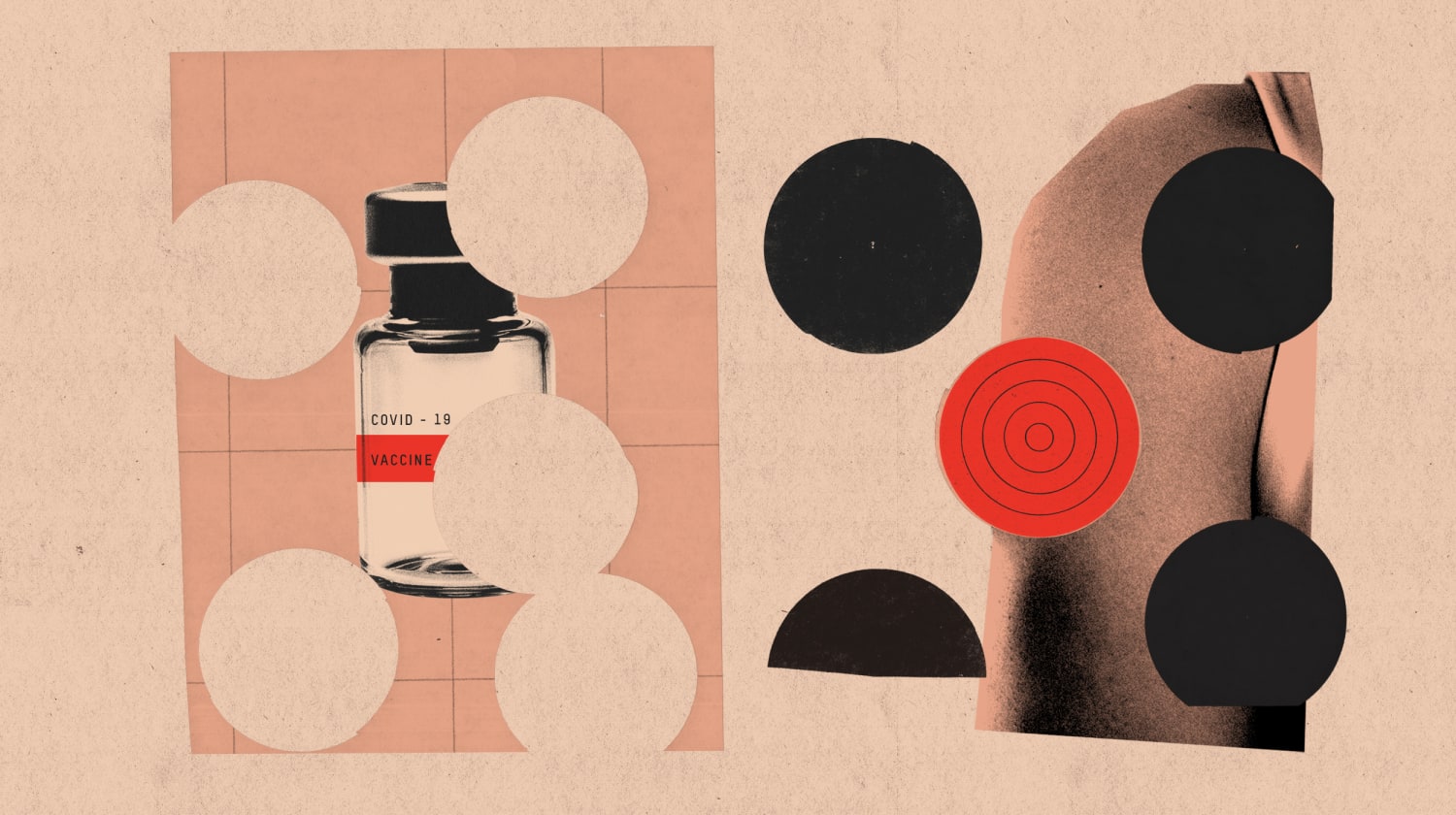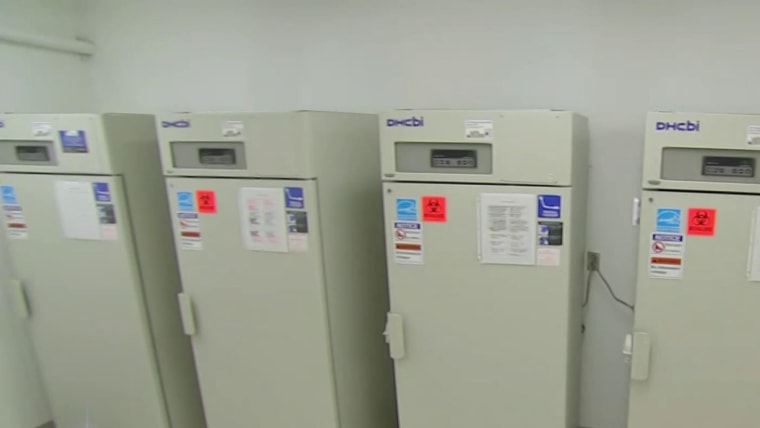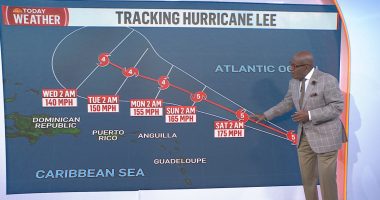How much will it cost?
Zilch, according to the federal government.
Whether or not they have health insurance, everyone in America will get the Covid-19 vaccine for free, according to the Centers for Medicare and Medicaid Services and the CDC.
Vaccine providers can charge a fee for giving the shots, but insurance companies are expected to cover it.
“It will be covered like other vaccines,” said David Allen, spokesperson for America’s Health Insurance Plans, an industry trade association.
The government has set aside a separate pot of money to cover the uninsured.
How effective are the vaccines?
Both the Pfizer and the Moderna vaccines have been found to be about 95 percent effective. That means a small slice of the population that receives them wouldn’t be protected against the disease.
But Moss, the Johns Hopkins vaccine expert, said he suspects the vast majority of those would probably have “mild illness” if infected.
“I think we could live with that,” he said.
Download the NBC News app for full coverage and alerts about the coronavirus outbreak
As a point of comparison, the flu vaccine is typically about 40 percent effective.
Both the Pfizer and Moderna vaccines require two doses, which should be taken at least 21 days apart in the case of Pfizer and at least 28 days for Moderna. People who get the shots will not be fully protected from illness until after they receive the second dose.
Will I be able to choose which vaccine I want?
By the time most people in America are able to receive the vaccine, there could be as many as four or five available.
Some experts think the vaccine manufactured by Johnson & Johnson, which expects to have the results of its Phase 3 clinical trials by January, could become the most widely available. It requires only one dose and, like Moderna’s, can be stored under normal conditions.
“I think we’ll get to a point where a person can choose which vaccine they want, but it won’t be in the early months,” Moss said.
Can children be vaccinated?
Currently, you must be 18 or older to take a coronavirus vaccine.
Pfizer has launched trials involving children as young as 12. But it’s unlikely a vaccine would be available to kids until at least next fall, experts say.
Dr. Sara “Sally” Goza, president of the American Academy of Pediatrics, said the organization hopes a vaccine will be approved before the beginning of the next school year.
“We know that once we have a vaccine for children, that will make it safer for children and for the adults in the school system,” she said.
Should pregnant women get the vaccine?
It’s a difficult question.
Pregnant women have been excluded from the clinical trials thus far, but a CDC study found that pregnant women are at increased risk for serious complications.
So, what to do?
“There isn’t a simple answer to questions about whether pregnant people, or those considering pregnancy, should take the Covid-19 vaccine, especially since no vaccine is currently approved,” Dr. Christopher Zahn, the vice president of practice activities of the American College of Obstetricians and Gynecologists, said in a statement.
“When the vaccines do become widely available, unfortunately, we have no data on the safety of the vaccine in pregnant and lactating individuals because they were excluded” from the clinical trials, he added.
Zahn added that women who are pregnant or considering pregnancy should consult their doctors and base decisions on the available data and their “individual risk factors and the potential benefits.”
Could I be allergic to the vaccine?
Each vaccine has gone through large-scale trials with thousands of people to make sure they are safe. Still, there is some concern that people who have allergic reactions to other vaccines could also be allergic to the coronavirus vaccines.
The U.K. is currently looking into reports that two health care workers suffered serious allergic reactions after receiving the Pfizer-BioNTech vaccine, though investigators are still trying to determine if they were caused by the shots.
Dr. Anthony Fauci, director of the National Institute of Allergy and Infectious Diseases, said the situation was “of some concern” for people with tendencies to have allergic reactions.
Could there be setbacks that delay the availability of the vaccine?
Yes. Rolling out the coronavirus vaccine to every American is among the most complex logistical challenges the country has ever faced. Several things could hamper the effort.
Doses could become scarce. Crucial supplies, such as syringes and gloves, could see shortages.
The virus has already put an unprecedented strain on hospitals and pharmacies. Staffing issues could hamper their ability to administer the vaccine.
“It was hard enough for us to just make masks and distribute them, which is a much easier thing to do than what we’re about to do with vaccines,” said Dr. Paul Offit, an infectious disease specialist and director of the Vaccine Education Center at the Children’s Hospital of Philadelphia.
“I think it’s going to be a real learning curve here over the next few months.”
Are there crucial things we still don’t know about the vaccines?
Yes. It remains unclear how long a person who receives a vaccine will be protected from the illness. Will it be a year? A few years? A decade? As more data becomes available, there will be further guidance on whether people will need to receive booster shots.
“I don’t think there’s any reason to suspect that this is going to be a vaccine that only offers several months or a year of protection,” Moss said. “I think it’s going to be at least several years, if not longer, but we don’t know.”
Another unknown: Could there be rare side effects that emerge several months after a person receives the vaccine?
The available safety data, which shows minor symptoms not unlike those caused by a flu shot, is short term. That’s usually good enough. The vast majority of adverse events that stem from vaccinations occur within 30 to 40 days, and the data covers that period.
But experts say it’s possible that some rarer, long-term side effects could emerge, though the risk of this does not outweigh the benefits of receiving the vaccine.
Finally, it’s still unclear if the vaccine prevents transmission of the virus. Both the Pfizer and the Moderna trials focused on disease as the primary outcome. They didn’t look at whether an individual can get infected without symptoms and transmit the virus.
If it turns out the vaccines are only, say, 50 percent effective at preventing asymptomatic transmission, people who receive them could still spread the virus.
“I think what’s going to happen when people get vaccines is they’re going to think, ‘I’m good. I can throw away my mask. I can engage in high risk activity,’ when in fact, they may still be at risk of shedding the virus and therefore being contagious to others,” Offit said.
How soon after the vaccines reach most Americans will life return to normal?
This is one of the most complicated questions.
Nine months after the pandemic began, Covid-19 is raging across the U.S. It will take more than a vaccine alone to bring a sense of normalcy to our everyday lives, experts say.
“Right now, the U.S. is on fire with this virus,” Offit said. “You’re not going to be able to put out the fire with just a vaccine.”
But it will certainly help. Experts said the introduction of the vaccines will likely lead to a gradual reopening of society.
Public health officials will no longer advise against small family gatherings. Indoor dining at restaurants will no longer be prohibited. Then, we could see the opening up of places such as movie theaters and concert halls as more people become vaccinated.
Assuming most of the population is vaccinated by early fall, the Thanksgiving, Christmas and holiday season could resemble what they did before the virus broke out, with large family gatherings and outdoor festivities taking place without fear of falling ill.
But calls to mask up are likely to remain deep into the new year, especially if it turns out the vaccines don’t fully prevent asymptomatic transmission.
Experts say the outlook will also depend on whether most Americans agree to get vaccinated.
The anti-vaxx movement in the U.S. is strong and multiple studies have shown large swaths of the population are reluctant to get vaccinated.
“The biggest disaster is if we have all these vaccine doses and people don’t want it,” Moss said.
“I do think that this virus is not going to just disappear,” Offit said. “I think what’s going to happen is that you’ll see cases decrease. You’ll see hospitalizations decrease. You’ll see deaths decrease. And then the question will become, when are we comfortable enough to say that that level of infection, that level of death, is something we can live with?”
Which, he said, is “pretty much what happens every year with influenza.”
Source: | This article originally belongs to Nbcnews.com











